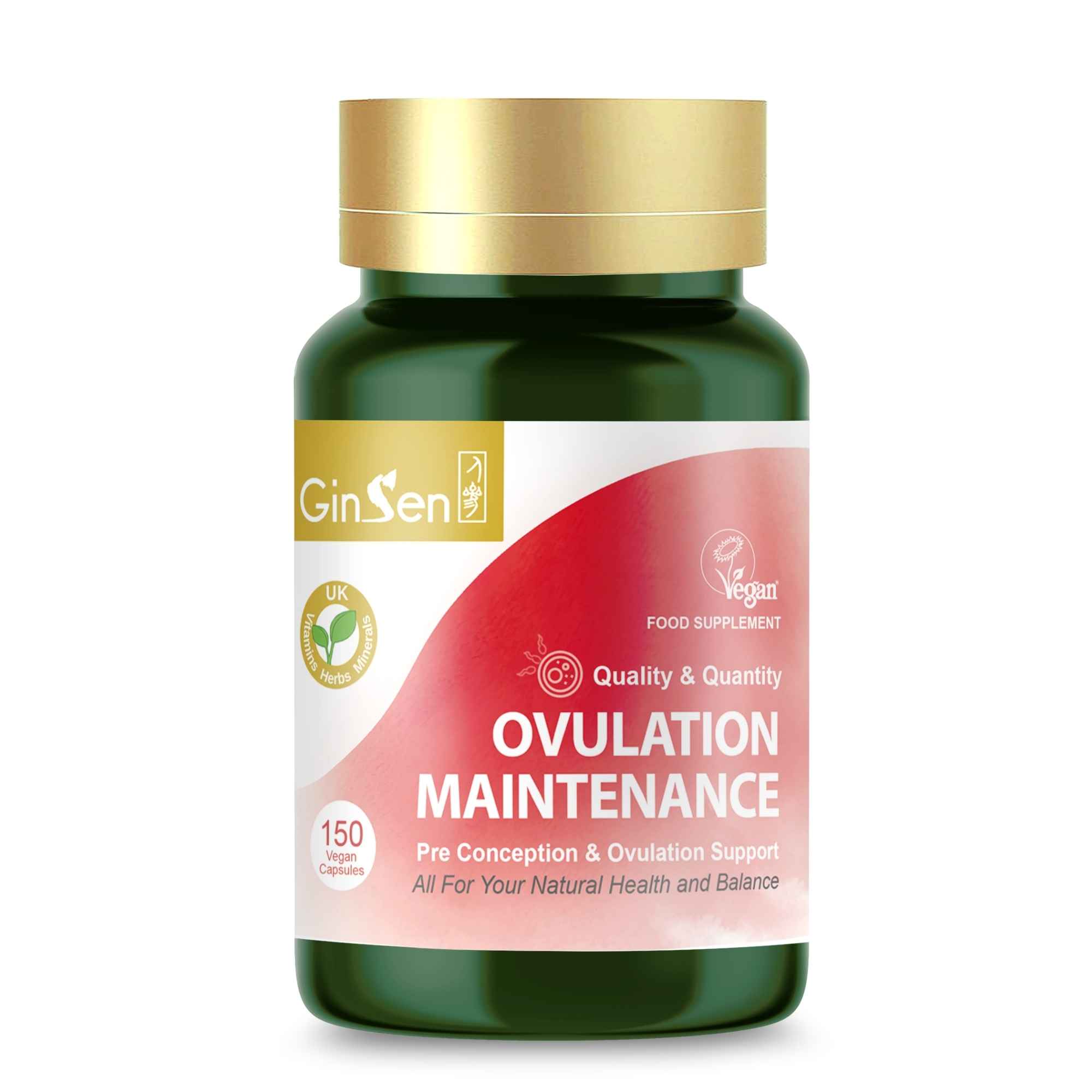
How Does Prolactin Affect Fertility? Everything You Need to Know
Prolactin, is a hormone that plays an important role in reproductive health. While its main function is tied to milk production, abnormal prolactin levels can have significant implications for fertility, as well as metabolic, and immune system functions.
Hyperprolactinaemia is the medical term for high levels of prolactin. Elevated prolactin, can disrupt the balance of reproductive hormones, leading to irregular menstrual cycles, ovulation issues, and even infertility. Prolactin, alongside other hormones like AMH and FSH, plays a vital role in fertility. Getting the right balance of reproductive hormones is the difference between a successful and unsuccessful pregnancy. Keep reading to find out how prolactin affect fertility and how Chinese Medicine can help you increase your chances of conceiving naturally.
What are Normal Prolactin Levels?
Prolactin is only a concern when it exceeds normal levels. the normal range for prolactin in your blood is:
- Non-pregnant female: less than 25 ng/mL
- Pregnant female: 80 to 400 ng/mL (during pregnancy, prolactin levels increase significantly to support milk production)
How Does Prolactin Affect Fertility?

Top 5 Causes of High Prolactin
Prolactin is crucial for both reproductive and hormonal health, but its levels need to remain in balance. High prolactin levels can disrupt fertility, affect how the ovaries work and can cause menstrual irregularities. There are several factors that can cause high prolactin levels:
PCOS (Spleen Qi Deficiency):

PCOS (Spleen Qi Deficiency): is a hormonal disorder that disrupts the normal functioning of the ovaries, often leading to prolactin and fertility problems. In a study out of 840 cases of PCOS, 17.1% had hyperprolactinemia.
In Chinese Medicine, the Spleen is responsible for transforming and transporting fluids and nutrients. When the Spleen is weak (Qi deficiency), it can lead to the accumulation of Dampness and Phlegm in the body. The Dampness and Phlegm can accumulate in the organs that are crucial for fertility, disrupting their function. In cases like polycystic ovary syndrome (PCOS), high prolactin levels may correlate with this type of accumulation, in turn affecting fertility.
Stress (Liver Qi Stagnation):

Excessive Stress activates the hypothalamic-pituitary-adrenal (HPA) axis. Studies have confirmed that psychosocial stressors have been shown to increase prolactin levels.
In Chinese Medicine, The Liver is responsible for the smooth flow of Qi and blood. Emotional stress, a common factor in high prolactin levels, is seen as causing Liver Qi stagnation. This stagnation can disrupt the flow of Qi, leading to irregular periods, PMS, or amenorrhea, which affects fertility.
Hypothyroidism:

Studies have confirmed primary hypothyroidism can lead to high Prolactin (hyperprolactinemia). In TCM, the sluggishness of Qi and Blood flow due to Kidney Yang or Spleen Qi deficiency can result in hormonal imbalances, including high prolactin. This can lead to symptoms like irregular menstruation, infertility, and fatigue, all of which are worsened by the thyroid’s impaired function.
Related: Hypothyroidism Infertility Treatment: How Chinese Medicine Can Help
Lack of Sleep

Lack of Sleep is a common cause of prolactin disruption. Studies have shown that prolactin levels have a significant positive correlation with sleep duration. Prolactin, like most hormones, is partly regulated by your sleep cycle, leading to hyperprolactinaemia if you experience prolonged sleep loss.
Lack of sleep increases stress on the body, leading to Liver Qi stagnation and potentially contributing to hormonal imbalances, including elevated prolactin levels.
Diet:

Diet: Certain Foods, including foods high in sugar, refined carbohydrates, and saturated fats, all affect prolactin levels and change fertility. Poor diet overall contributes to endocrine imbalances. In Chinese Medicine, overconsumption of cold, greasy, or damp-inducing foods can weaken the Spleen and lead to the accumulation of Dampness and Phlegm, exacerbating conditions that lead to high prolactin levels.

How Can You Get Pregnant with High Prolactin?
Although it maybe challenging, it is possible to get pregnant even with elevated prolactin. The challenges occur as elevated prolactin disrupts the normal hormonal balance required for ovulation and fertility. In Chinese Medicine, getting pregnant with high prolactin levels is approached by diagnosing the root cause of high prolactin, once the underlying cause is established it can be managed and addressed successfully to increase your chances of conceiving.
Acupuncture for elevated prolactin and fertility
Acupuncture is a Chinese Medicine treatment that involves inserting fine needles into specific points in the body.
Ovulation is a key factor in fertility, as Prolactin usually slows down ovulation. Acupuncture can be effective treatment in addressing this. Studies have shown that repeated acupuncture treatments result in a higher ovulation frequency.
Acupuncture is known as a successful treatment for elevated prolactin and fertility problems. A 2018 study found that acupuncture normalised prolactin levels within nine treatments, “harmonising the menstrual and ovulation function.” Acupuncture also improves blood flow, proper blood flow is essential for nourishing the uterus and ovaries, promoting a healthy endometrial lining for implantation, and supporting egg development, increasing your chances of conceiving.

Numerous studies have shown the acupuncture as an effective treatment for stress, additionally it can also clear Dampness and Phlegm by stimulating specific points that strengthen the Spleen. All of which can assist with hormonal balance, fertility and menstrual irregularities.
In another study, acupuncture was confirmed to alter prolactin and progesterone levels, leading to high rates of embryo implantation.
How to Find The Best Acupuncturist
Not all acupuncturists have the same skills or results. Choosing the right acupuncturist is the difference between a successful implantation and failure. So, what should you look for?
1. Check Credentials and Qualifications: Ensure your acupuncturist is a member of recognised organisations. Here are GinSen, our acupuncturist are members of British Acupuncture Council (BAcC) and The Royal Society of Medicine (RCM). Membership in these bodies guarantees we adhere to high standards of practice and ethics.
2. Experience and Specialisation: Look for an acupuncturist with extensive experience, particularly in fertility and women’s health. A specialist in these areas will better understand your specific needs and challenges. At GinSen all our experts have over 30 years of experience in their respective fields.
3. Consultation and Communication: Reputable acupuncturists typically offer a free initial consultation to discuss your concerns without pressuring you into treatment. Use this opportunity to assess their communication style and determine if you feel comfortable and supported. We offer free no obligation consultation that is available worldwide.
4. Check Reviews and Success Stories: Research online reviews and look for success stories from previous patients. Positive feedback and proven outcomes can provide confidence in the acupuncturist’s ability to support your fertility journey effectively. Read our success stories here.
Recommended Supplements
Ovulation Maintenance
GinSen’s Ovulation Maintenance Supplement is expertly formulated to support women’s reproductive health by promoting regular ovulation and hormonal balance. These supplements for ovulation contain powerful ingredients ideal for those who are experiencing irregular or missing ovulation (anovulation) or want that extra boost whilst trying to conceive. New improved formula features a blend of 8 herbs and vitamins, this ovulation supplement is particularly important to build up healthy ovulation prior to conception, making it great for preconception.

Diet and lifestyle

Under the guidance of TCM, women trying to deal with high prolactin and fertility issues should eat warm foods. Examples include ginger, cinnamon, lamb, and black beans. In contrast, cool and raw foods should be avoided – think salads, dairy, and ice drinks – as they increase dampness and stagnation.
Yin-nourishing foods like bone broth, eggs, and sesame seeds are particularly helpful for maintaining harmony and promoting hormonal regulation.
Lifestyle
Your lifestyle also plays a crucial role in your hormonal health. Promote healthy prolactin and fertility levels with the following tips:
- Manage Stress: Practice relaxation techniques like meditation, deep breathing, or yoga to reduce cortisol and prolactin.
- Get Adequate Sleep: Aim for 7-9 hours of quality sleep to support hormonal balance.
- Moderate Exercise: Engage in regular but moderate physical activity to avoid excessive stress on the body.
- Limit Caffeine and Alcohol: Reduce intake of stimulants that can impact hormone regulation.
- Herbal Support: Consider herbs like vitex (chasteberry) to help balance prolactin levels naturally.
Notes: Prolactin levels naturally fluctuate throughout the day and can be influenced by stress, sleep, and hormonal shifts. In some cases, high or low prolactin levels may contribute to infertility, irregular menstrual cycles, low libido, or sexual dysfunction, but not all fluctuations require medical treatment.
In Traditional Chinese Medicine (TCM), prolactin imbalances are often linked to Liver Qi stagnation , Kidney deficiency, or Spleen weakness. Herbal formulas, acupuncture, and lifestyle adjustments may help regulate hormonal balance, support fertility, and restore the body’s natural rhythms.

For more information about how Chinese Medicine can help you with elevated prolactin and fertility, book your free consultation with our Chinese Medicine experts today
* These statements have not been evaluated by the Food and Drug Administration. This information is not intended to diagnose, treat, cure, or prevent any disease. We can’t guarantee the treatment result, as the symptoms of conditions are unpredictable and vary greatly from person to person. The treatment length and recovery time also varies for individual. Please visit our clinics website: GinSen where a specialists will discuss your care and provide a consultation, and the treatment will be designed to meet your individual needs.





